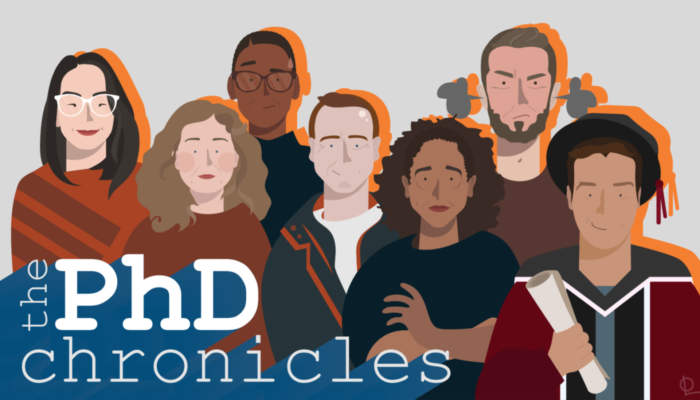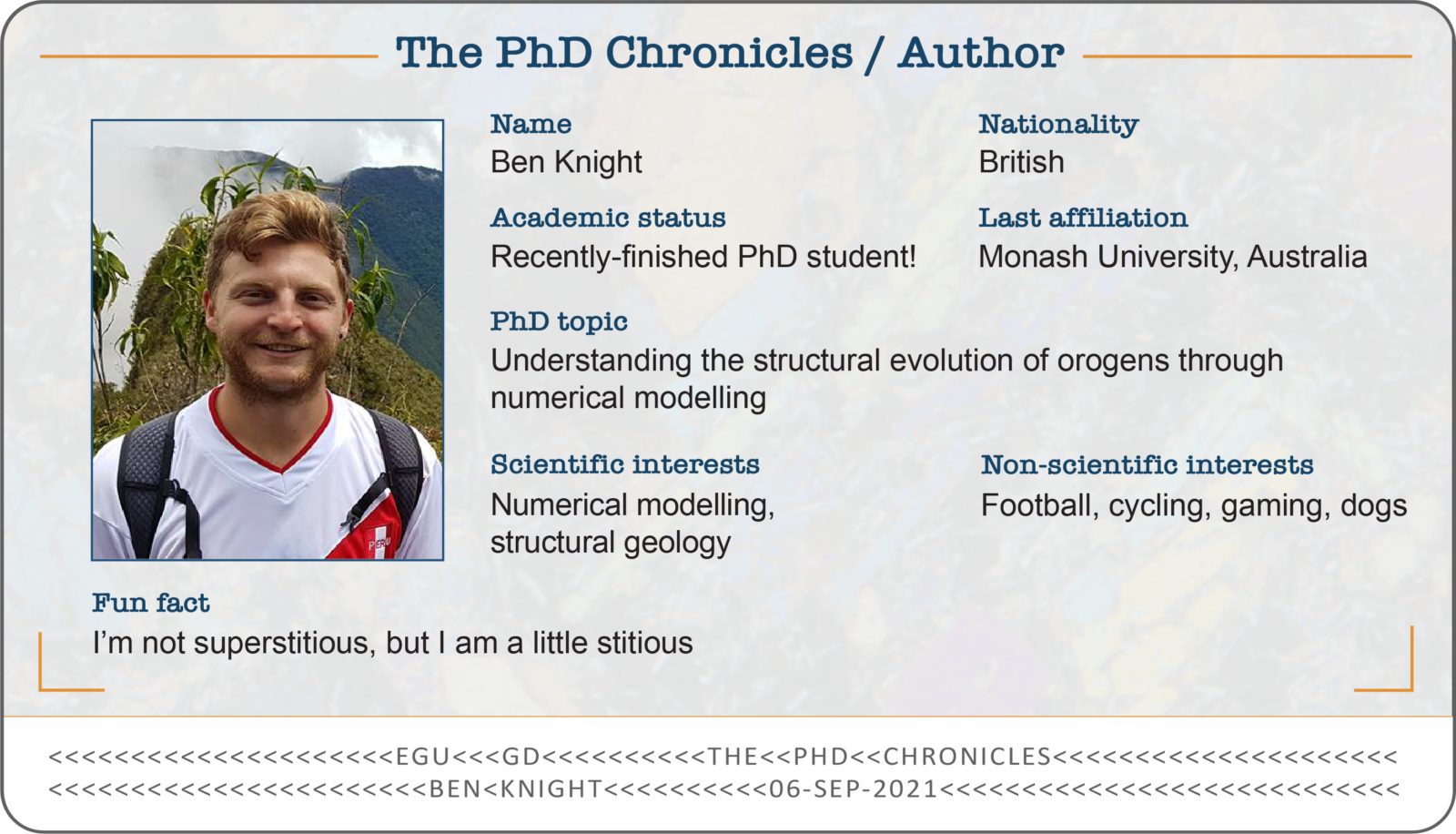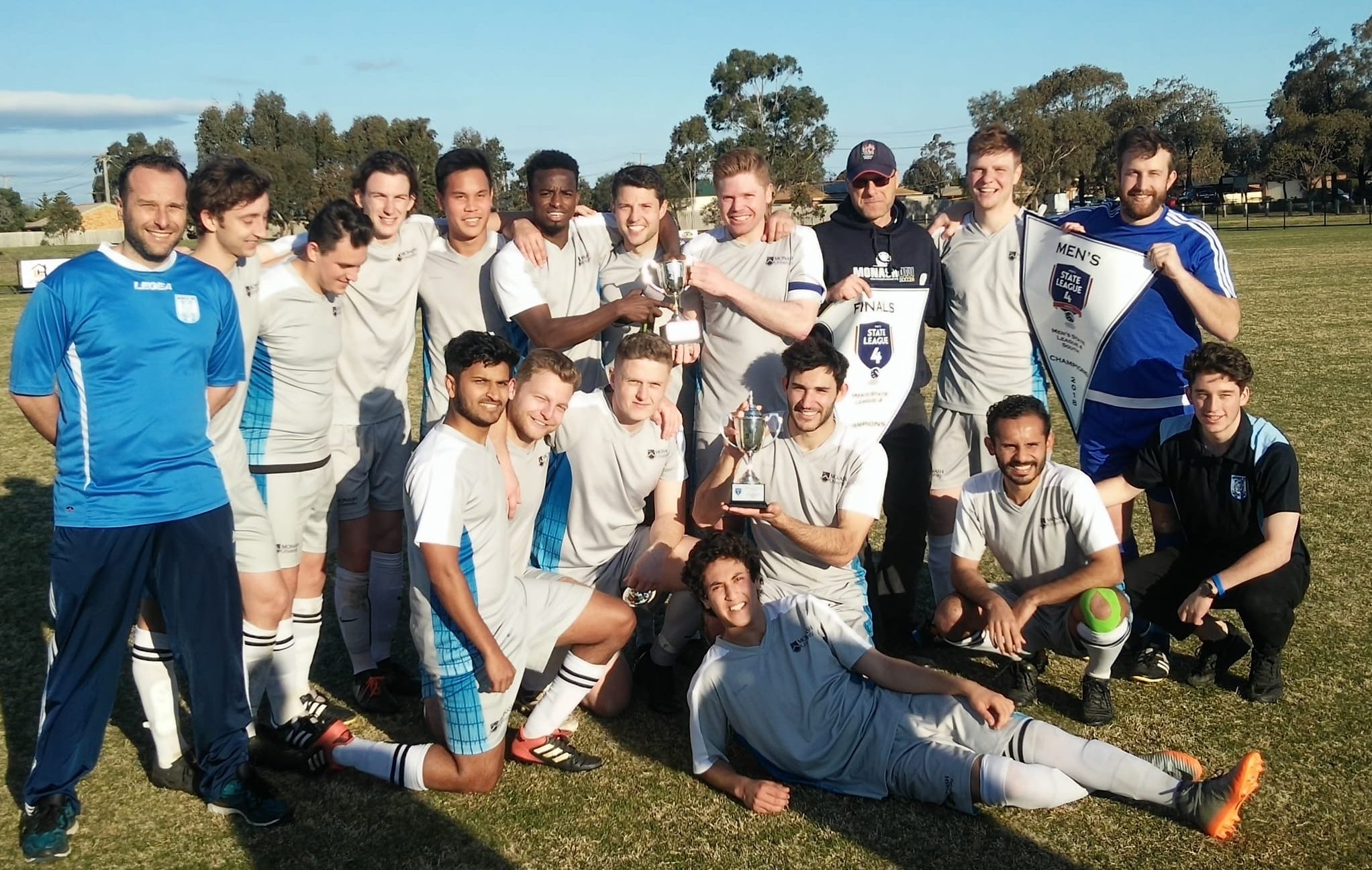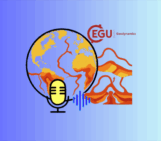
Doing a PhD is one of the most rewarding experiences in life. You get to conduct your own research, develop your skills, and ultimately become a doctor! Think back to when you were told that your application was accepted, and you were going to start the PhD position. I bet you were excited and nervous; I know I was!
However, after starting your PhD, the excitement may fade and stress can start to accumulate. It definitely did for me. I found myself working late into the night trying to figure out why my numerical models weren’t behaving as they were supposed to (I hope I wasn’t the only one). We all want to put the hours in and do great research – or even get your model working as it is supposed to – but those extra hours can be detrimental if sustained for long periods. A key aspect of any early career researcher (or any researcher in fact) is maintaining that work-life balance. Although this may be different for everyone, in this blog post I will mention some pointers and some personal anecdotes for what has worked for me. Hopefully, these will help to improve your work-life balance during your PhD and beyond!

A key factor in maintaining the work-life balance is a schedule. Sure, some things come up that may disrupt your schedule (e.g., checking an experiment, presenting online at a conference), however this should be the exception rather than the rule. Everyone is different and the hours during which you are productive may vary from your peers. For me, my productivity peeks in the morning, usually accompanied by a coffee. This is when I will get most of my writing done, whilst the afternoon is usually for other tasks that do not usually require as much thinking.
Being a PhD researcher offers some freedom as to when you work, so you can make the most of your productive hours, no matter when they are. If you are unsure when you’re most productive, you can write a journal to note your productivity throughout the day. Repeat this for a week and you can determine when you’re most productive. Once you’ve determined when you’re most productive, you can start to schedule your day. A schedule really helps to maintain that work-life balance, as you’re maximising your productivity time on research and unproductive time on other activities. If you know how much of your day you want to spend on research, you can break down tasks into smaller chunks to help reach your goals. This will help to get that presentation, manuscript, or thesis ready!
Studies have shown that when engaging in an easy task (e.g. exercise, reading) or relaxing (e.g. in the shower, daydreaming, sleeping), away from a problem, the chances of solving that problem increases significantly (Baird et al., 2012; Kudesia et al., 2015) . In these studies, the key aspect to this phenomenon is mind wondering, which helps to link pieces of information that were already known. Although you won’t solve the problem you’re facing every time, these extra-curricular activities will also help with your mental health by reducing stress, so it’s a win-win! Next time you’re facing a problem, it could be beneficial to do another task or relax.
You’ll be happy to discover I realised the error in my code to get my models working whilst out on the bike, I then was making notes on my phone before returning home. I have also had a breakthrough whilst trying to have a nap, so now I always have something to make notes close to hand as you never know when or where these breakthroughs can occur.
Being a PhD researcher offers some freedom as to when you work, so you can make the most of your productive hours, no matter when they are
For me, the key point to these breakthroughs whilst also maintaining my work-life balance is trying to switch off from research. Similarly to how switching off your phone and hiding other distractions can help with productivity, switching off your email/slack/zoom notifications if you have them on your phone or computer and close the word document, excel spreadsheet or jupyter notebook can help to switch off from work. Planning activities throughout the week and the weekend (e.g., exercise, meeting up with friends, camping, sports) really helps to maintain that work-life balance and disconnect, temporarily, from research. Switching off from research can really help improve your mental health and reduce academic fatigue (who knew that was actually a thing?), whilst it also helps to process the information you gather from your research throughout the working day and helps to make breakthroughs.
What helps me switch off from work is football, playing socially in a futsal team as well as for a men’s team which has three sessions a week. Football was something I neglected during my undergraduate but a sport I always wanted to get back into. Maybe there’s an activity, sport, or hobby you’ve also neglected or always wanted to try that can help to re-equilibrate your work-life balance. When I’m not playing football, you can either find me cycling around Melbourne, on a walk, or doing a bit of yoga to help my body recover. This is great for my well-being and also enhances my research, with many breakthroughs made whilst out on a bike ride, walk, or in the middle of a yoga flow. So, make sure you’re making the most of your time, not only on your research for yourself too!

The way I re-charge my science battery: playing football with friends at the Monash University Soccer Club. Here is the team after winning the Victorian State League 4 championship.
Switching off from research can really help improve your mental health and reduce academic fatigue
References Baird, B., Smallwood, J., Mrazek, M.D., Kam, J.W., Franklin, M.S., and Schooler, J.W. (2012) Inspired by distraction: mind wandering facilitates creative incubation. Psychol Sci., 23(10): 1117-22. doi: 10.1177/0956797612446024. Kudesia, R.S., Baer, M., and Elfenbein, H.A. (2015). A Wandering Mind Does Not Stray Far from Home: The Value of Metacognition in Distant Search. PLoS ONE, 10(5): e0126865. https://doi.org/10.1371/journal.pone.0126865
![]()
After a summer break, The PhD Chronicles is back! On each first Monday of the month, The PhD Chronicles blog series gives a special place for PhD researchers to share their successes, challenges, and failures. Would you like to share your story? Contact us here.
![]()





